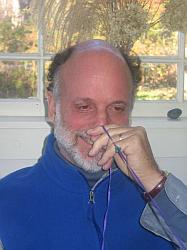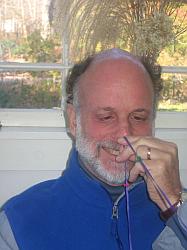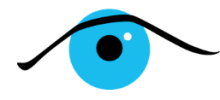


- Q: What is Natural Vision Improvement?
- A: Vision improvement is a process of re-learning to see, by changing poor visual habits to those which support good vision. Dr. William Bates, an ophthalmologist who practiced early in the 1900s, was the first pioneer in this work. Many practitioners work strictly with Dr. Bates’ methods; other practitioners include techniques from vision therapy (vision training done in an optometrist’s office) and other holistic methodologies. Relaxation and re-education of the mind and eyes are at the foundation of any vision training.
- Q: Who can benefit from vision education?
- A: Vision education can benefit everyone. It can help people with nearsightedness, farsightedness, presbyopia (“middle-age sight”), astigmatism, eye teaming problems such as amblyopia and strabismus. It is very beneficial for reducing eye strain and computer strain syndrome. It can be beneficial to those diagnosed with eye diseases (such as cataracts, glaucoma, macular degeneration) to complement their doctor’s care. It works for people of all ages, from children to the elderly.
- Q: How does it work?
- A: Dr. Bates discovered in his decades of research on eyes and vision that tension and strain are the cause of poor sight. Vision happens primarily in the brain, and mental stress can be a key factor in vision problems. Unconscious or conscious mental and physical strain effect the muscle function of the eyes, causing poor vision. Vision educators teach the habits of good vision, as well as techniques to promote effective eye coordination, depth perception, and skills for effortless seeing.
- Q: Do I have to throw away my glasses to improve my vision?
- A: Vision improvement is usually a gradual process. If you are just beginning to need glasses, you may be able to do without them right away. It is always important to use the appropriate lenses for safety-related situations such as driving. Those who have worn glasses for many years may need to step down their prescription, using a lens that gives less than 20/20 vision (20/30 is a good guideline for many people). If one always wears a full compensating lens, there is no stimulus to improve. The eyes will adjust to whatever lens is in front of them.A rule of thumb with lenses is to use the weakest lens you can, to do what you need to do safely, without strain. If going without lenses leads you to strain, it is better to wear a weak lens.
- Q: How do I find an optometrist who will prescribe a weaker lens?
- A: You may have to shop around to find someone who will work with you. You may choose to keep your old, stronger glasses for driving (i.e. especially at night, or in unfamiliar places). Ask the optometrist if they are willing to prescribe a reduced lens which will give you approximately 20/30 vision with both eyes open, so you are legal to drive, but not fully corrected. If they are not willing, go somewhere else (it is your money, after all. You are paying for their service).Behavioral optometrists are usually willing to prescribe these kinds of corrections. To find one near you, ask a local Vision Educator or go to www.COVD.org. Please note: Some of the behavioral optometrists listed on this site are holistic. Others are mostly doing vision therapy with children who have learning difficulties or eyes that don’t work together, and are uninterested in myopia reduction. Before making an appointment it is best to ask whether they are willing to give reduced prescriptions.
- Q: How can I learn more about Natural Vision Improvement?
- A: The best way to get started is with a teacher. If you can’t get to a teacher, you might try books and kits. We have included a list of books which will help you learn more about vision under “Resources”. At the site for the Association for Vision Educators, https://naturalvisionteachers.com/ there are also products, such as kits and tapes which are available, plus more information on vision.

